05 September 2018
Danish stakeholder workshop on mussel mitigation cultures in Skive Fjord
The mussel mitigation concept of removing nutrients was introduced to various stakeholders from politics, business, property owners and several organizations of recreational activities at the Danish workshop on the 5th of September 2018. Mussel farming, the concept of mussel mitigation farming, legislation issues and the potential and perspectives of mussel mitigation cultures were presented and lively debated.
During the groupwork and the following presentations the workshop participants were invited to share their knowledge, concerns and suggestions regarding mussel mitigation farming in Skive Fjord. A general consensus was the need for identifying different areas of interests to stakeholders to avoid conflicting uses of the sea and shoreline.
The workshop was organized by DTU Aqua in co-operation with the Department of Environmental Science at University of Århus.
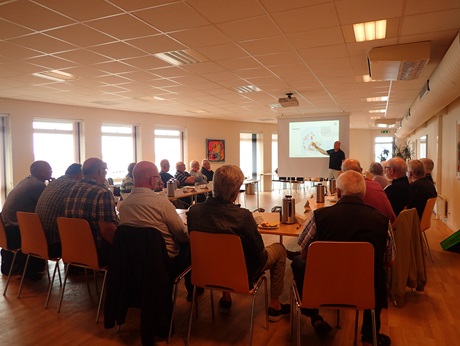
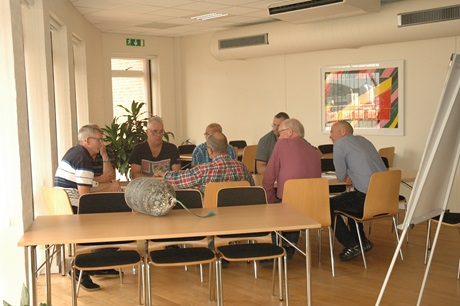
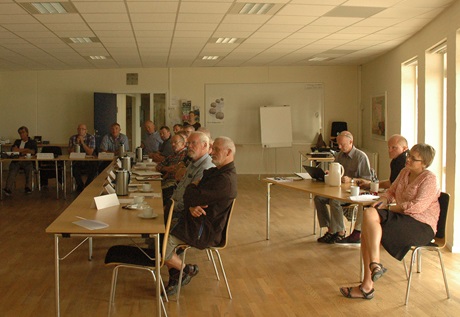
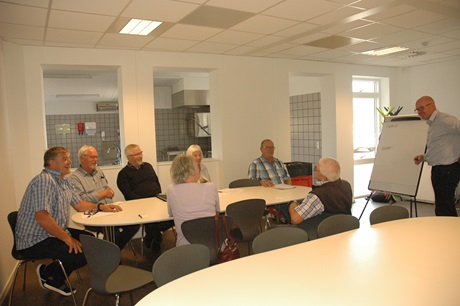
31 May 2018
Test of socio-economic survey at the German case study
On May 31st 2018, the EUCC-D project team travelled to Alt Reddevitz, a small village located in the eastern part of Rügen Island, Germany. This coastal area is a popular summerhouse destination surrounding the Greifswald Bay, where the project mussel farm was installed in April 2017.
The purpose of this trip was to test the survey about public perception and social acceptance of the mussel farm. The actual survey will be carried out between July and September 2018 and will be directed at tourists, inhabitants and holiday house owners within the case study area Hagenschen Wiek
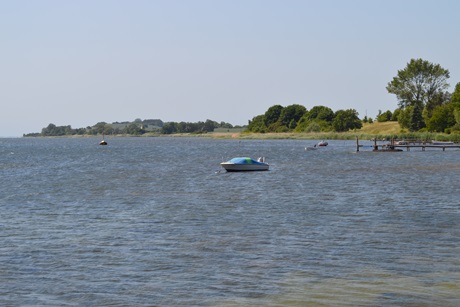
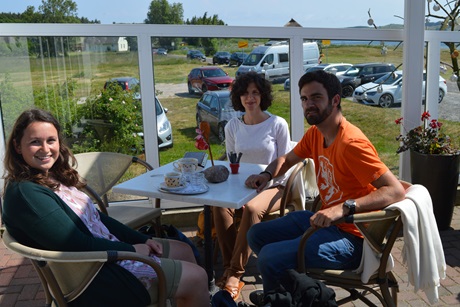
10-12 April 2018
2018 Annual Meeting
OPTIMUS project members met this April in Warnemünde, Germany for a series of presentations and discussions on progress over the past year, as well as planning and organization for activities in 2018-2019. WP leaders presented initial findings to project partners and formalized coordinated actions for the coming mussel settlement and growth season. OPTIMUS as an integrated project, and individual WPs were described to the independent advisory board, with a discussion panel. All participants were provided an excursion to the test farm site in Greifswald Bay. Project members are grateful to the Leibniz-Institute for Baltic Sea Research for hosting this year's annual meeting and look forward to reconvening at IOPAN in 2019.
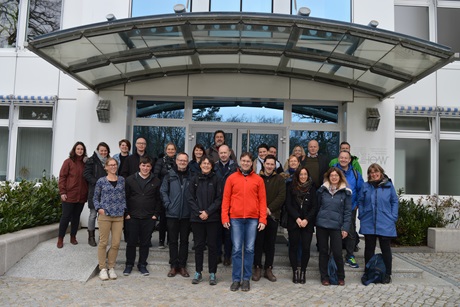
OPTIMUS project team
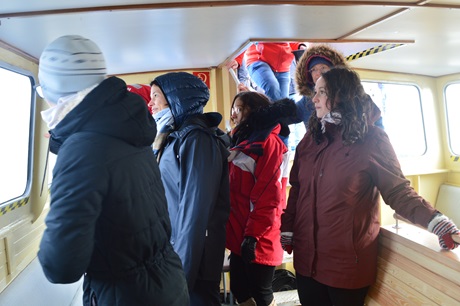
Excursion on Greifswald Bay
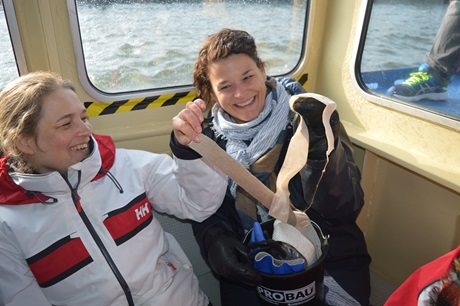
Different settling material was presented during the excursion
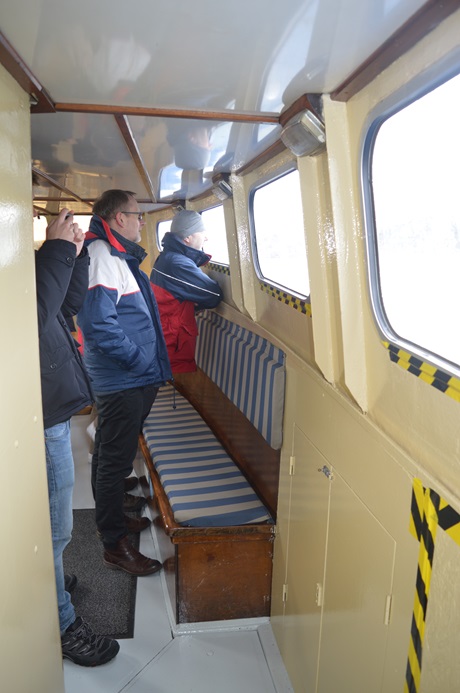
Excursion on Greifswald Bay

Test farm in Greifswald Bay
23 January 2018
First German stakeholder workshop -
Lively debate about mussel farming during first German stakeholder meeting
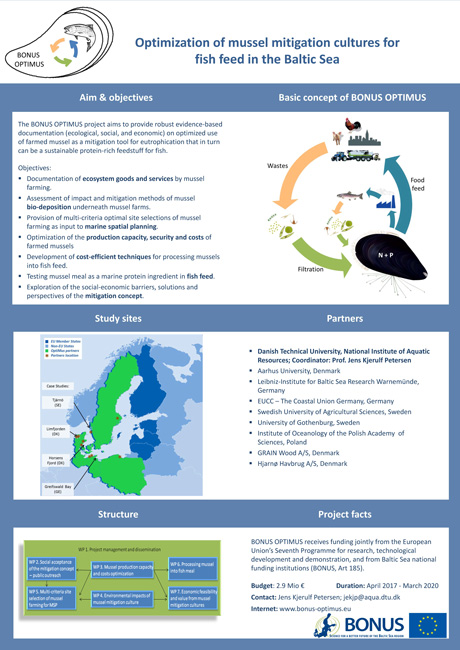
The idea behind mussel farming for nutrient removal was introduced to various stakeholders from politics, tourism, business, science and environmental protection during our first German workshop on the 23rd of January 2018. Site selection processes, installation challenges and first growth results in the Greifswald Bay were presented and lively debated.
Workshop participants were invited to share their knowledge and to “flag” potential further locations for internal nutrient reduction measures in German coastal waters: Blue flags for mussel farms, green for floating plant islands, yellow for mechanical measures such as sediment dredging, red for chemical measures such as phosphorus precipitation with aluminum and white flags at locations where no internal measures should take place. In one point, all participants agreed: Chemical measures in coastal zones have no acceptance so far.
The workshop was organized by the Coastal Union Germany in co-operation with the Leibniz Institute for Baltic Sea Research Warnemünde and the South Baltic project LiveLagoons.
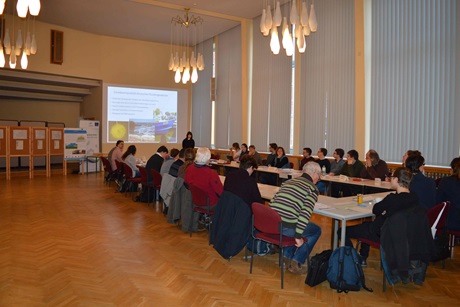
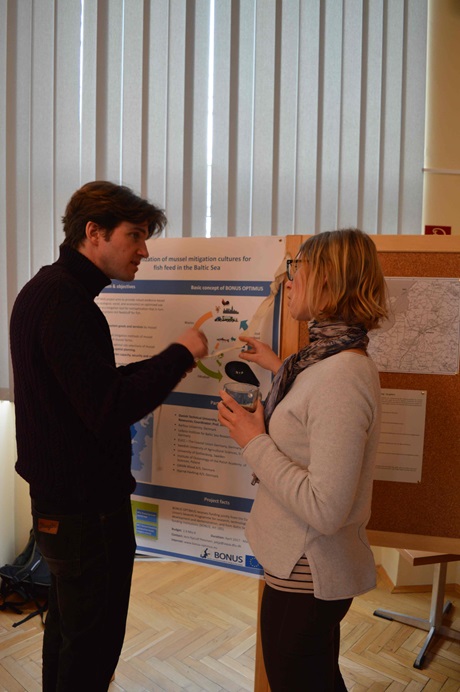
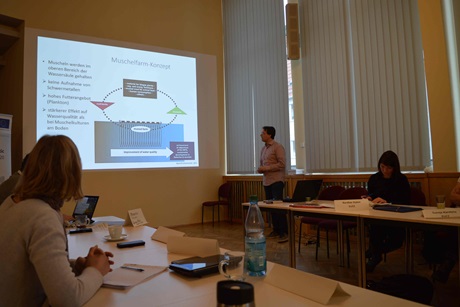
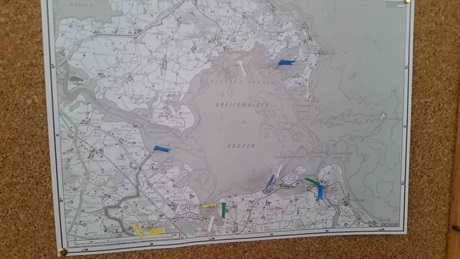
23 January 2018
First German stakeholder workshop
On 23rd January 2018 the first BONUS OPTIMUS workshop about the case study site Greifswald Bay will take place in Stralsund. The workshop will be organized by EUCC - The Coastal Union Germany in cooperation with the Leibniz-Institute for Baltic Sea Research Warnemuende. Stakeholders from research, public authorities, municipalities, economy (tourism and fishery) and NGOs are invited to discuss the potentials of mussel cultivation for nutrient removal and water quality improvement. The respective project partners will present the outcomes of the site selection process and of the first growing season.
More information about workshop and agenda, click here
More BONUS OPTIMUS news